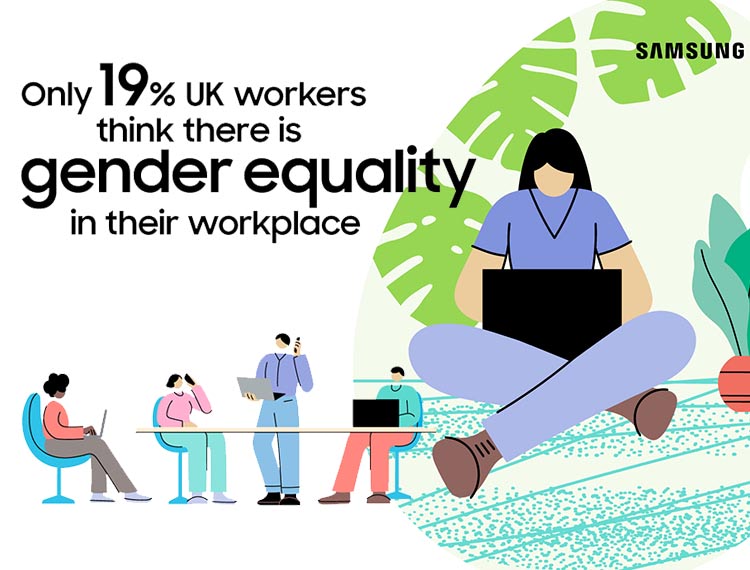Stereotypes are still the biggest barrier for women reaching corporate heights

Gender stereotypes are the biggest barrier facing women in corporate jobs according to new research from Nyenrode Business University (@NyenrodeNBS).
According to the researchers, Rosalien van ‘t Foort-Diepeveen, Aikaterini Argyrou and Tineke Lambooy key barriers identified include gender stereotypes, bias in recruitment and promotion, devaluation of women, a masculine organizational culture, work-family issues and a lack of professional support.
The research revealed that the barriers identified in the literature are interrelated and intertwined.
The authors identified that the barriers oftentimes reinforce each other and further deteriorate women’s disadvantaged position by creating a vicious circle, from which it can be very difficult to escape. One of them is the double bind that results from gender stereotypes. Because of these descriptive stereotypes, women are not regarded as competent, but when they have proven to be competent, they are often disliked.
According Rosalien van ‘t Foort-Diepeveen “Gender stereotypes seem to be the most persistent barrier, as stereotypes play a role in almost all of the other barriers, stereotypes about women result in prejudice and bias in women’s societal, economic, organizational and working environment and this is constantly reinforced by distorted human perceptions about women from both men and women. Our review shows there are also barriers related to women’s own choices, motivations, incentives and self-perceptions pertaining to career preferences.”
“A lack of self-promotion has a reciprocal effect. Due to the lack of self-promotion, women can be blamed for not having leadership competencies, but if women promote themselves, they risk being negatively judged based on stereotypes. The barriers “organizational culture” and “work-family balance/conflict” are also tightly intertwined. Patriarchal and male-gendered working structures facilitate the association of full-time work, unbroken career paths and long working hours with commitment. We found women with a family will find it difficult to comply with these norms and so may be regarded as less committed than men and therefore excluded from leadership positions in the corporate world.”
The researchers also warn that we should be aware that the lack of women at the corporate top affects women’s access to female mentors and role models. Unfortunately, this can only change when more women enter the corporate top.
The research shows that there is no silver bullet in increasing the number of women on corporate tops and that several barriers need to be removed before women can enter the top more easily. Due to the multi-faceted nature of the barriers, the barriers cannot be overcome by individual women themselves nor by companies alone.
Companies can develop and introduce specific measures in their organisations and governments can impose effective quota legislation to eliminate many of these (interrelated) barriers.
Less than one in five see gender equality at work
Nearly half of UK workers still see certain jobs as being exclusively ‘male’ or ‘female’ new research reveals. The study by @Samsung Pioneers – Samsung UK’s gender equality platform – shines a spotlight on workplace gender stereotypes, with 44% of people still believing certain roles are suited to either men or women.
Less than one in five (19%) believe there is gender equality in their workplace. Not being put forward for opportunities, such as a project, was the biggest driver behind this, with women feeling this more acutely (42%) than men (35%) as did Millennials (52%) compared to those aged 45-54-year (26%).
Findings also revealed almost one in five (17%) of women have not applied for a job for fear of being discriminated against because of their gender.
Despite this, the research shows that progress is being made – with over half (62%) of respondents believing the Chief Executive Officer role to be gender neutral, and 68% finding those who break gender barriers in the workplace ‘inspiring’.
The Breaking Bias Research – commissioned by Samsung UK, surveyed 2,000 UK respondents on their opinions towards gender equality at work, including views on if certain jobs, industries, departments and workplace skills are ‘for men’, ‘for women’, or ‘gender neutral’. While a significant number of respondents believe the majority of roles and industries as ‘gender neutral’, the research highlights unconscious bias still exists in the workplace.
Charlotte Grant, Head of Inclusion & Engagement at Samsung UK and Ireland said:
“We are moving in the right direction as shown by this research, which is certainly encouraging. But there is still a long way to go to achieve total gender parity in the workplace. Companies have an active role to play in tackling this, creating a culture where conscious inclusion is a part of everyone’s every day and where actively challenging bias becomes the norm.”
“At Samsung, we believe equality and inclusion is fundamental in shaping a better future and our workforce should mirror our diverse customer base. Whilst we know there is always more to do, we are committed to putting this into practice, most recently launching our Women@Samsung Employee Resource Group and rolling out conscious inclusion awareness training throughout our entire UK & Ireland business to advocate positive change.”
Skills in the workplace
When it came to skills in the workplace, the survey found men are four times more likely than women to have perceived leadership skills (23% vs 5%). According to the findings, women are associated with qualities such as empathy (45% vs 4% men), listening (39% vs 6% men) and understanding (33% vs 6% men), suggested ingrained gender stereotypes around workplace attributes are still prevalent in 2021.
Skills/qualities associated with men
- Assertiveness (28%)
- Leadership (23%)
- Numeracy (13%)
- Productive (11%)
- Resourceful (10%)
Skills/qualities associated with women
- Empathy (45%)
- Listening (39%)
- Understanding (33%)
- Social skills (24%)
- Organisational (23%)
(Above: List of top 5 skills most associated with men and women, in order)
Gender in job roles
While the majority of respondents view UK industries as predominantly gender-neutral, highlighting a more progressive shift in attitudes, engineering, law enforcement and technology saw the greatest disparity in terms of gender bias. In comparison, the leisure and creative arts industries ranked highly as the most gender neutral industries.
Industries associated with men
- Engineering (33%)
- Law enforcement/security (29%)
- Trade (e.g. bricklayers, plumbers, etc.) (29%)
- Technology (19%)
- Finance (17%)
Industries associated with women
- Fashion (30%)
- Retail (14%)
- Healthcare (14%)
- Hospitality (13%)
- Art and Design (11%)
Industries associated as gender neutral
- Leisure (81%)
- Performing arts (80%)
- Law (79%)
- Recruitment (79%)
- Art and Design (78%)
Above: List of top 5 industries associated with men and women, in order
Male and female perceptions
Across all fifty jobs included in the survey, women were more likely than men to categorise careers as ‘gender neutral’, than their male counterparts suggesting variations in bias.
When it came to skills in the workplace, the research showed men viewed leadership as a ‘male’ quality more strongly than women (28% vs 20%), which supports the findings that the role of CEO was more likely to be associated as ‘man’s job’. Interestingly, a third (31%) of women agreed with this, highlighting internal perception can also be a barrier to women reaching senior leadership positions.
 Agata Nowakowska, Area Vice President at Skillsoft, said:
Agata Nowakowska, Area Vice President at Skillsoft, said:
“This research highlights that it’s more important than ever to challenge gender stereotypes and bias. Women are still largely under-represented in the STEM arena and even less so in STEM leadership positions. The reality is that – even in 2021 – it’s so much more difficult for women to climb the career ladder. With persistent unconscious bias that women lack the confidence to apply for promotions or that they are simply not good enough to hold leadership positions, women have to work much harder than men to prove their ability.
“Some women even believe that to be a good leader or be chosen as one they need to exhibit male traits. This isn’t the case at all. In fact, research by McKinsey & Company found that organisations that had more gender diversity on their executive teams were 15% more likely to experience above-average profitability than other companies. Improving gender diversity clearly makes business sense. Women add a different dynamic to male leaders and there’s no reason why more women can’t be the next Indra Nooyi or Ginni Rometty.
2For women to be truly equal, we need to teach about gender equality within schools. Both boys and girls need to learn to regard themselves as equal and they are both capable of taking up any role, whether that’s in STEM or leadership. Educating children at a young age is the only way to remove unconscious bias that affects us later on in our professional working life.”
Nicole Sahin, Founder and CEO of Globalization Partners:
“This research reinforces that employers must prioritise equality across every aspect of the organisation, to ensure women’s progress is accelerated. The reality is that while many women and male allies are championing workplace diversity, only 5 of the top Financial Times Stock Exchange 100 Index companies are steered by women. And at that current rate of growth, it would take more than 80 years for the number to reach 50%.
“In order to achieve greater balance sooner, management teams must make equality for everyone a priority – from the recruiting process, through professional development and management training. One of the biggest misconceptions women are faced with is the perception that they are less fierce or competitive – qualities often associated with leaders. You only need to look to the USA’s Women’s football team for proof of how inaccurate that is.
“All female leaders need to claim their place at the table. Whilst making a commitment to creating a diverse, inclusive culture requires more than a simple step, research shows that diverse companies perform better and are better for society in turn – the return on investment in gender equality efforts are undoubtedly worth it.”

Responses